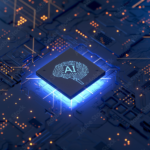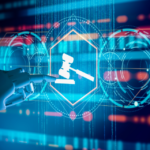Ethical Considerations in Artificial Intelligence
Artificial Intelligence (AI) has the potential to bring about significant advancements and benefits across various industries. However, as AI continues to evolve and become more integrated into our lives, it is crucial to address the ethical considerations that arise from its deployment. In this blog, we will explore some of the key ethical considerations surrounding AI and discuss the importance of responsible AI development and deployment.
Transparency and Explainability
One ethical concern with AI is the lack of transparency and explainability in its decision-making processes. As AI systems become more complex, it can be challenging to understand how they arrive at their conclusions or recommendations. This lack of transparency raises questions about accountability and fairness, particularly in high-stakes applications such as healthcare and criminal justice. It is essential to develop AI systems that provide clear explanations for their decisions to build trust and ensure accountability.
Bias and Fairness
AI systems are only as unbiased as the data on which they are trained. If the training data contains biases, such as gender or racial biases, the AI system can perpetuate and amplify those biases in its outcomes. This can lead to unfair treatment or discrimination against certain individuals or groups. To address this concern, it is crucial to ensure diverse and representative datasets and implement measures to detect and mitigate bias throughout the AI development lifecycle.
Privacy and Data Protection
AI often relies on vast amounts of data to learn and make predictions. This raises concerns about privacy and data protection. Organizations must handle personal data responsibly, ensuring compliance with relevant regulations and implementing robust security measures to protect sensitive information. Transparent data usage policies and obtaining informed consent from individuals are essential in maintaining trust and safeguarding privacy in AI applications.
Accountability and Liability
As AI systems become more autonomous and make decisions that impact individuals’ lives, determining accountability and liability can be challenging. If an AI system makes a harmful or biased decision, who should be held responsible? Establishing clear frameworks for accountability and liability is crucial to address potential risks and ensure that organizations deploying AI systems are accountable for their actions.
Job Displacement and Workforce Impact
AI and automation technologies have the potential to significantly impact the workforce, leading to job displacement and changes in job roles. While AI can automate routine tasks and improve productivity, it is essential to consider the broader societal impact. Organizations and policymakers should proactively address the potential consequences of job displacement, including retraining and upskilling programs to support affected workers and ensure a just transition.
Ethical Decision-making and Governance
Developing AI systems that align with ethical principles requires a clear framework for ethical decision-making and governance. Organizations should establish guidelines and codes of conduct for AI development and deployment, ensuring that ethical considerations are embedded throughout the process. Collaboration between academia, industry, policymakers, and the wider public is crucial in defining ethical standards and fostering responsible AI practices.
Human-AI Collaboration and Autonomy
While AI systems can automate tasks and improve efficiency, maintaining a balance between human judgment and AI capabilities is essential. Ethical considerations should prioritize human autonomy and decision-making. Human-AI collaboration frameworks should be designed to leverage the strengths of both humans and AI systems, ensuring that AI technologies serve as tools to augment human capabilities rather than replacing human judgment entirely.


































